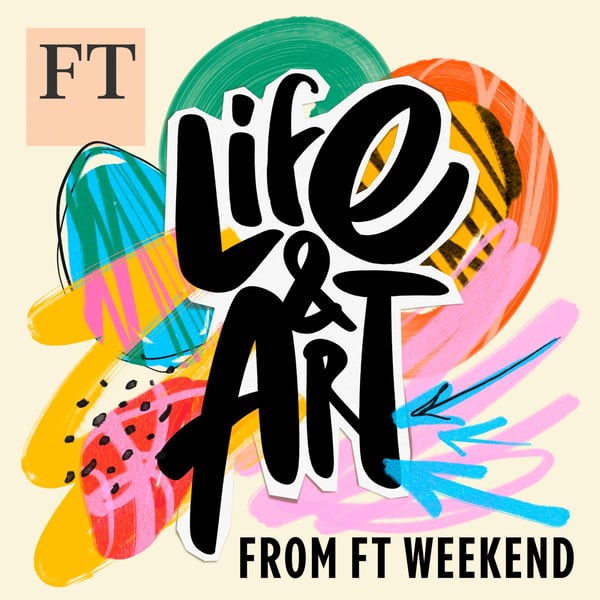Behind the scenes with music's biggest mogul
Life and Art from FT Weekend
Forhecz Topher
4.6 • 601 Ratings
🗓️ 2 October 2021
⏱️ 26 minutes
🧾️ Download transcript
Summary
How has the music industry changed over the past decade? The FT’s business and media reporters tell the dramatic tale, and introduce us to the most powerful exec in the business: Universal Chief Sir Lucian Grainge. Then, ethical philosopher Julian Baggini questions what our bookshelves say about us, and Work & Careers editor Isabel Berwick, a Duolingo master, makes the case for learning a new language from scratch. This weekend, we explore the forces that shape our cultural habits: how we listen to music, how we learn languages, and how we read.
Listeners: what are you reading, watching, eating, doing, that is making you happy? We want your recommendations, to use in a future episode. Write us, or record and send us a voice note at [email protected]. We’re on Twitter @ftweekendpod, and Lilah is on Instagram and Twitter @lilahrap.
Links from the episode:
—Profile of Sir Lucian Grainge, the last music mogul, by Andrew Edgecliffe-Johnson and Anna Nicolaou: https://www.ft.com/content/ae259b02-67a1-4eec-848c-7dc739efa910
—Julian Baggini on why we should get rid of our books: https://www.ft.com/content/3aac4854-997e-4391-b7e0-627142ba00e4
—Isabel Berwick on being a Duolingo champion: https://www.ft.com/content/872f057e-ec37-4f93-b72a-03e83ec107a4
––FT review of Ride Upon the Storm, one of the Danish shows Isabel loved (the other is called Rita): https://www.ft.com/content/f1ad0fda-1e5e-11e9-b126-46fc3ad87c65
For an exclusive 50% online subscription (and a discounted FT Weekend print subscription!), follow this link: http://ft.com/weekendpodcast
Sound design and mixing is by Breen Turner, with original music by Metaphor Music.
Hosted on Acast. See acast.com/privacy for more information.
Transcript
Click on a timestamp to play from that location
| 0:00.0 | Remember how we used to listen to music? |
| 0:10.0 | I had a friend as a kid who had the first Backstreet Boy CD, and I used to go to her house to listen to it pretty regularly because I didn't own it. |
| 0:21.9 | And this is bad to say, but I didn't even really like her. |
| 0:26.9 | I just went there so that I could listen to the CD. |
| 0:32.6 | At some point in the years that followed, The Dam broke. |
| 0:36.2 | You remember when the Dam broke? Suddenly, all the |
| 0:39.3 | music we could have ever wanted was accessible, and we could download whole albums on Napster, |
| 0:45.0 | or we could file share a lifetime of music with our friends. And we were hungry because |
| 0:50.1 | it was all free. Fast forward to today, we have playlists. |
| 0:55.3 | We have music by subscription. |
| 0:57.3 | It's an all-you-can-eat buffet that we essentially lease. |
| 1:00.3 | And the only thing keeping it organized is the algorithm, |
| 1:03.6 | which is its own sort of danger. |
| 1:05.6 | You know, I listen to one thing on Spotify. |
| 1:07.7 | The algorithm tells me to listen to more like it. |
| 1:10.2 | And suddenly, am I becoming |
| 1:11.7 | a version of myself that it's decided that I am? But I've recently come into a record collection. |
| 1:17.7 | It's about 100 soul, funk, pop, and jazz records from the 60s through the 80s that would |
| 1:23.0 | have otherwise been thrown away. So I'm listening to these albums on vinyl, and then I'm searching them on |
| 1:29.0 | Spotify to put them in a historical context, and then I'm digitally saving the songs and albums |
| 1:34.9 | that I love. It's been a bizarre, analog digital exercise, and it's made me think about |
| 1:41.1 | how we take in culture and how much of it is our choice. |
... |
Please login to see the full transcript.
Disclaimer: The podcast and artwork embedded on this page are from Forhecz Topher, and are the property of its owner and not affiliated with or endorsed by Tapesearch.
Generated transcripts are the property of Forhecz Topher and are distributed freely under the Fair Use doctrine. Transcripts generated by Tapesearch are not guaranteed to be accurate.
Copyright © Tapesearch 2025.

